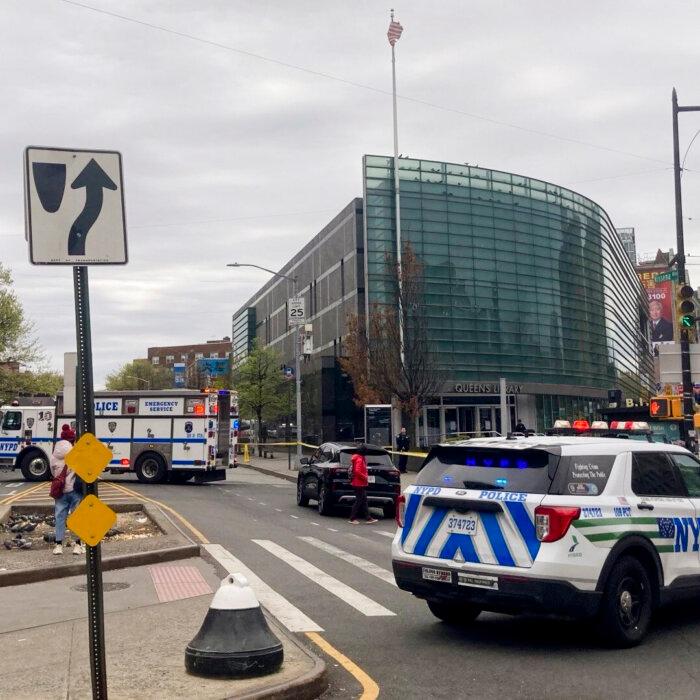The legacy of an unprecedented peaceful protest that happened decades ago in communist China was recently commemorated in New York, in the form of a parade and a vigil. A few participants in both events were among the protesters in China at the time, advocating for their right to practice their faith freely.
On April 25, 1999—exactly 26 years ago to this day—about 10,000 Falun Gong practitioners congregated in China’s capital, Beijing, in one of the largest protests in China’s recent history. The event, known as the April 25 appeal, came less than three months before the Chinese Communist Party (CCP) launched a brutal campaign to eradicate the group—a persecution that has continued unabated to this day.
After a train ride of more than an hour, Wang said he arrived in Beijing at around at 9 a.m. local time on April 25. He then headed for the Office of Letters and Appeals, which is located near Zhongnanhai, the compound for the top CCP leaders.
“I went there early, and there were not many people. Later, more and more people arrived. We all stood there, very quietly, without shouting any slogans or holding any banners,“ Wang said, pointing out that ”everything was in an orderly fashion.”
“Later, at around 9 p.m., I heard that several representatives of Falun Gong had talked to [then-Chinese Premier] Zhu Rongji, and several of our demands had been met. People began leaving when they heard about this,” Wang said. “As for me, I went straight to the nearby train station and went home.”

Tianjin authorities released the 45 Falun Gong practitioners in the evening on April 25, 1999, which the New York-based Falun Dafa Information Center said was an orchestrated decision by the Chinese authorities, considering that multiple Falun Gong practitioners who had gone to the appeal “were confronted by police at their homes for doing so.”
As for the opportunity to take part in the parade, Wang said with tears in his eyes that he was thrilled and emotional.
Falun Gong
Falun Gong, also known as Falun Dafa, is a spiritual discipline that features meditative exercises and teachings based on the principles of truthfulness, compassion, and tolerance.The practice became enormously popular in China by the late 1990s, with official estimates putting the number of practitioners at more than 70 million at the time. Fearing that the practice’s following could threaten its rule, the CCP launched the persecution on July 20, 1999.

Zhang Guiying, a medical doctor, also took part in the parade. Speaking at a rally after the parade, Zhang said that she was at Tianjin Normal University and an eyewitness to the mass arrests in Tianjin in April 1999.
She said the police officer made their arrests violently—an old lady in her 60s was pushed and fiercely beaten, a young girl started crying after being beaten, and a young man who had come to defend the girl was injured after he was slammed against a wall.
Zhang also went to Beijing on April 25, 1999. The appeal was peaceful and orderly from start to finish, she said, noting that none of the Falun Gong practitioners there made a commotion or caused a disturbance.
Samuel Ortiz, president of a Queens-based leadership association for Puerto Ricans, was among those who came to see the parade. He said that he had heard about Falun Gong’s three principles.
“I think compassion is what it’s all about,” Ortiz said.
Ortiz said he had also heard about the Chinese regime’s forced organ harvesting, calling such a practice sinister and shocking.
“Every force of Heaven and Earth should be brought together to bring those people to justice,“ he said. ”It’s a terrible thing. Beyond medieval.
“I think we need to shine a light on justice. And I think one of the goals in our journey is to bring people together. Find out what we must do together in order to uplift humanity.”

Vigil
About 500 Falun Gong practitioners held a vigil to commemorate the April 25 appeal in front of the Chinese Consulate in New York on the evening of April 19. Among them was Wen Ying, who had managed to flee China with her husband, Liu Jianping, and their son six months earlier.Wen, who is from northern China’s Heilongjiang Province, said she started practicing Falun Gong in 1994. Since the start of the persecution, Wen said she had been arrested five times, and she completed her seven-year imprisonment in 2023.
Now living in the United States, Wen expressed her gratitude for the chance to practice her faith openly in a society that values freedom.

Gao Hongmei had come to the vigil appealing to the Chinese regime to release her mother, a Falun Gong practitioner named Hu Yulan, who is in her 70s. Gao said her mother was given a five-year sentence in 2020.
“There are many Falun Gong practitioners, including those around my mother’s age, who are still in prison,” Gao said. “Now we hope that the CCP will quickly end the persecution and release all the Falun Gong practitioners.”











